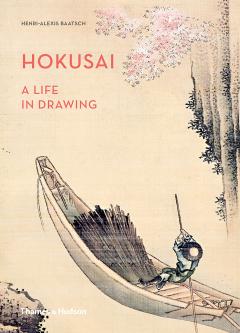A beautifully illustrated introduction to this master artist, who combined great technical prowess with remarkable imagination and a passion for vivid detail
Katsushika Hokusai (1760–1849) was the most prolific and diverse artist of Japan’s Edo period, with a body of work reputed to include more than 30,000 drawings, paintings and prints.
In an era when Japan had isolated itself from the outside world, its urban centres enjoyed increasing wealth and stability, leading to a flourishing culture of art and pleasure-seeking. Woodblock prints of the genre known as ukiyo-e – ‘images of the floating world’ – became defining images of the age, and from humble beginnings in a working-class district of Tokyo, Hokusai rose to become a master of this style of printmaking.
Driven and endlessly inventive, he used many names over the course of his long career, but perhaps the most telling was Gakyojin – ‘the madman of art’. His works range from portraits of popular actors and courtesans to landscapes and seascapes, including his celebrated Thirty-Six Views of Mount Fuji, and from cleverly observed scenes of everyday life to the erotic prints known as shunga.
While his prints had a huge influence on the course of Western art, it is equally true that he himself was influenced by European painting, embracing techniques such as perspective and adapting them to suit Japanese tastes.

